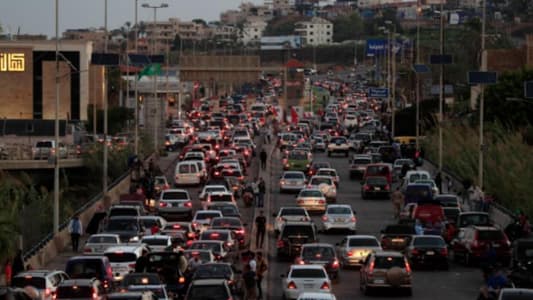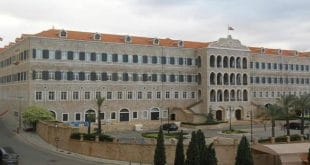تراجع استهلاك الوقود بنسبة 35%… النزوح والدمار أبرز الأسباب
في ظل الظروف الصعبة التي يمر بها لبنان بسبب الحرب والنزوح، تغيّر نمط الحياة اليومية للكثير من اللبنانيين، ومن ضمنها التنقل باستخدام السيارات. حيث كانت “النزهة” أو “المشوار” بالسيارة جزءاً أساسياً من حياة اللبنانيين، لكنها أصبحت اليوم غير ممكنة بسبب تقييدات الحرب. النزوح الجماعي وخسارة عدد كبير من اللبنانيين لمركباتهم ساهم بشكل كبير في انخفاض استهلاك المحروقات في العديد من المناطق، حيث تشير الإحصاءات إلى انخفاض استهلاك البنزين بنسبة وصلت إلى 50% في بعض المناطق.
وفقاً لجورج البراكس، عضو نقابة أصحاب محطات الوقود، فإن التراجع في استهلاك المحروقات يشمل البنزين والمازوت والغاز. ويفسر البراكس ذلك قائلاً: “النزوح الجماعي وتجمع اللبنانيين في مناطق محددة، بالإضافة إلى زيادة ساعات التغذية بالكهرباء من قبل شركة كهرباء لبنان، قلّل من استخدام مادة المازوت، خصوصاً لدى أصحاب المولدات الكهربائية. كذلك تأثر استهلاك الغاز اليومي بسبب مغادرة العديد من العائلات منازلها بسبب الحرب”.
وأضاف البراكس أن استهلاك المحروقات شهد انخفاضاً بنسبة تفوق 35%، متوقعاً أن هذا التراجع قد يستمر مع استمرار الحرب وتفاقم الأوضاع الأمنية. وأوضح أن انخفاض استهلاك الغاز والمازوت جاء نتيجة للنزوح الكبير، حيث لم تعد الحاجة إلى هذه المواد كما كانت سابقاً.
أزمة التنقل وتبدّل الخيارات
بعض اللبنانيين لجأوا إلى استخدام الدراجات النارية كبديل أقل تكلفة في استهلاك الوقود. “نشأت”، الذي نزح من بلدة جنوبية، أشار إلى أنه اضطر لاستئجار دراجة نارية للتنقل بعد خسارته لسيارته، قائلاً: “حتى التنقل أصبح محظوراً علينا. كنت أخرج مع أولادي في نزهات بالسيارة، ولكن اليوم لم يعد هذا متاحاً بعد خسارة سيارتي”.
من جهتها، تحدثت “زينب”، النازحة من منطقة البقاع، عن افتقادها للقيام بالأنشطة اليومية التي كانت تعتمد فيها على سيارتها، مشيرة إلى أنها بالكاد تستطيع تأمين حاجيات أطفالها سيراً على الأقدام بعد أن خسرت سيارتها نتيجة القصف.
تقلّبات أسعار المحروقات وتأثيراتها
في حديثه لـ”الشرق الأوسط”، أشار البراكس إلى أن أسعار المحروقات تشهد تقلبات حادة مرتبطة بالتوترات السياسية في المنطقة، لافتاً إلى أن أي تصريح حول هجوم على منشآت النفط في إيران يمكن أن يؤدي إلى ارتفاع مفاجئ في أسعار النفط، في حين أن غياب هذا التهديد يساهم في خفض الأسعار بسرعة.
وعلى الرغم من هذه التحديات، أكّد البراكس أن لبنان لا يواجه أزمة محروقات حالياً، وأن البلاد تمتلك الكميات اللازمة لتلبية الاحتياجات في ظل استقرار الأوضاع الميدانية وفتح الطرق البحرية لاستيراد مشتقات النفط.
إلا أن البراكس حذّر من أن أي تغييرات قد تؤثر على الموانئ اللبنانية قد تتسبب في نقص المواد الأساسية، مشيراً إلى أن إغلاق مطار بيروت قد يزيد من تفاقم الأزمة.
تأثير النزوح على استهلاك المشتقات النفطية
نتيجة للنزوح الداخلي، توقفت حركة التنقل في العديد من المناطق اللبنانية تماماً، مثل الجنوب والبقاع وضاحية بيروت وبعلبك، مما أدى إلى انخفاض كبير في استهلاك المحروقات في هذه المناطق. بالمقابل، زاد الضغط على المناطق التي تستضيف النازحين، مما أدى إلى ارتفاع استهلاك الغاز والمازوت في تلك المناطق.
ومع اقتراب فصل الشتاء، من المتوقع أن ترتفع نسبة استهلاك المازوت والغاز، خصوصاً في المناطق الجبلية التي تأوي عدداً كبيراً من النازحين.
المصدر: فيفيان حداد – الشرق الأوسط
Fuel Consumption Drops by 35%… Displacement and Destruction as Key Factors
The ongoing war in Lebanon has profoundly altered the daily lives of many citizens, particularly in terms of mobility. Once a staple part of Lebanese culture, the “drive” or “outing” in a car has become a distant memory due to the restrictions imposed by the conflict. Massive displacement and the destruction of a significant number of vehicles have contributed to a sharp decline in fuel consumption, with statistics showing that gasoline usage has dropped by as much as 50% in some regions.
George Brax, a member of the Syndicate of Gas Station Owners, highlighted that this decline extends beyond just gasoline, affecting diesel and gas consumption as well. Brax explained: “The mass displacement of Lebanese and their concentration in limited areas, along with the increased electricity supply by Electricité du Liban, have reduced the need for diesel, especially among generator owners. Gas consumption has also dropped as many families have left their homes due to the war.”
Brax added that fuel consumption has fallen by more than 35%, a trend likely to continue as the conflict drags on. He noted that the demand for gas and diesel has dropped significantly due to the exodus of over a million people from their homes.
Mobility Crisis and New Alternatives
Many Lebanese have resorted to using motorcycles, which consume less fuel than cars. Nashet, who fled from a southern town, mentioned that he had to rent a small motorcycle for transportation after losing his car. “Even outings are now off-limits,” he said. “My children used to ask for drives, but after losing my car, this is no longer an option.”
Zainab, displaced from the Bekaa region, described how she missed doing daily errands using her car, noting that she now has to walk to meet her children’s basic needs after her car was destroyed in a bombing.
Fuel Price Fluctuations and Impacts
In his interview with “Asharq Al-Awsat,” Brax pointed out that fuel prices are highly volatile, often influenced by geopolitical tensions. He mentioned that a single statement about potential strikes on oil facilities in Iran could cause oil prices to surge, while the absence of such threats could rapidly lower prices.
Despite these fluctuations, Brax reassured that Lebanon does not currently face a fuel shortage. He confirmed that there are adequate supplies available as long as the current situation remains stable and maritime routes remain open for imports.
However, Brax warned that any disruptions affecting Lebanon’s ports could lead to shortages of essential goods, noting that if Beirut’s airport were to close, the situation could become even more critical.
Displacement’s Impact on Fuel Consumption
The displacement crisis has led to a near-total halt in mobility across many areas in Lebanon, including the south, the Bekaa, and regions like Beirut’s suburbs and Baalbek. Consequently, fuel consumption has plummeted in these areas, with Brax estimating a 35% drop. Meanwhile, the influx of displaced people has increased demand in host areas, particularly for gas and diesel at bakeries, restaurants, and supermarkets.
As winter approaches, Brax predicted a rise in demand for diesel and gas, especially in the mountainous areas where a significant number of displaced families have sought refuge.
Translated by economyscopes team
 سكوبات عالمية إقتصادية – EconomyScopes إجعل موقعنا خيارك ومصدرك الأنسب للأخبار الإقتصادية المحلية والعربية والعالمية على أنواعها بالإضافة الى نشر مجموعة لا بأس بها من فرص العمل في لبنان والشرق الأوسط والعالم
سكوبات عالمية إقتصادية – EconomyScopes إجعل موقعنا خيارك ومصدرك الأنسب للأخبار الإقتصادية المحلية والعربية والعالمية على أنواعها بالإضافة الى نشر مجموعة لا بأس بها من فرص العمل في لبنان والشرق الأوسط والعالم




